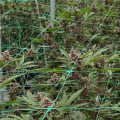In general, there are two different license fees. There is an application fee, which is the fee paid at the time the application is submitted and is the fee associated with having the regulatory body review and process the application. Then, once the application is approved, the actual licensing fee is paid. Generally, the license fee must be paid every year for renewal.
The state license fee also varies depending on the type of license you are applying for. Every new entrepreneur has to face the reality of business creation costs. However, those who start a marijuana business may have more expenses than a typical business. And if you find that you can't cover all of these upfront expenses yourself, you can seek funding to start your marijuana business.
This is another reason why you want to create a complete business plan; any investor or lender you turn to for money will want to see it to know if your business is well thought out and if you have a plan to make a profit. And when you start thinking about funding, add another 40%, according to Helfant, anything you think you'll need. Because of clause 280E (which applies to illegal drug dealers who respect the law and pay taxes), marijuana companies spend a lot more in federal taxes than average small businesses. There is a 25% tax on what the producer sends to the processor and another 25% tax on the processor to the retailer.
After that, the retailer faces another 25% tax when the product passes into the consumer's hands. For Washington, there is a regular sales tax of 10%, a city tax, and another federal tax of 25%. According to Cannabis City owners, about 60% of the value of the product goes to taxes, 30% to the costs of goods sold, and about 1% to 5% goes to running the business. The cost to start a cannabis business can vary significantly depending on the type of cannabis business, your location, and your operating requirements.
As the California cannabis industry gains momentum, an increasing number of people are expressing interest in participating in the cannabis movement. CDFA, an acronym for the California Department of Food and Agriculture, is the state regulatory body that oversees the commercial cultivation of cannabis. The license required to grow cannabis depends on the type of production and lighting used and the number of plants grown or the size of the canopy (the flowering area a). For example, distributors may transport cannabis products from one grower to a testing laboratory or from another distributor to a retail licensee.






